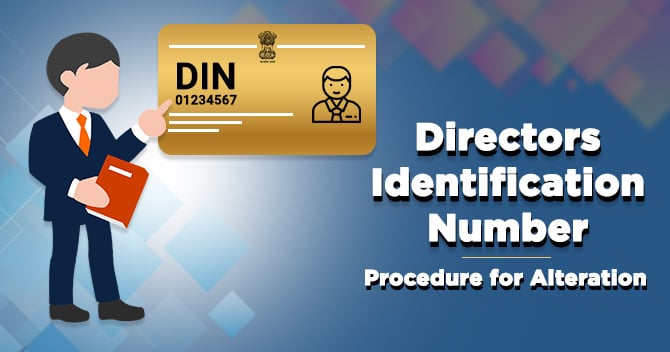In relation to the Companies Act 2013, Independent Directors means a director other than a Managing Director or Whole-time director or a Nominee Director. For appointing the Independent Director, the Companies are required to follow the separate criteria which have been established to have an Independent Director.
Amendment in Rules of Independent Directors
On October 22, 2019, The Ministry of Corporate Affairs has come up with the introduction of the Companies Creation and Maintenance of databank of Independent Directors Rules, 2019 and the Companies Appointment and Qualification of Directors Rules, 2019 jointly referred to as “Independent Directors Rules”, and both is effective from 1st December, 2019.
The Corporate Affairs Ministry has in addition introduced the Companies Accounts Amendment Rules, 2019 which has now made it a compulsory requirement to additionally disclose in the Company’s Directors’ Report. Therefore, as part of its Directors’ Report, the company is now obligated to give a statement concerning the Board’s opinion with respect to integrity, proficiency and experience (including the expertise) of the independent directors who are appointed throughout the year. The term “proficiency” here refers to the independent director’s proficiency as determined from the self-assessment proficiency test conducted online by the institute as notified under Section 150 (1) of the Companies Act, 2013 i.e. in the Indian Institute of Corporate Affairs (“IICA“). He should clear this test with 60% marks and within one year time period counting from the inclusion date of his name in the data bank and on his failure, his name shall stand removed from the data bank of the IICA.
What is the Role of an Independent Director?
Independent Director is a person of integrity and must have relevant expertise and experience. Independent Directors plays an important role in improving corporate credibility and government standards. Independent Director by actively involving in the committees set up by the company ensures better governance.
They are responsible to examine, monitor and report the performance of management concerning aims and objectives as has been agreed in the meetings of board. They are obliged to preserve all the stakeholder’s interests most importantly protect the interest of the minority shareholders.
What are the Criteria of Appointment of the Independent Director?
- To bring an objective view while evaluating the performance of the board and management of the company
- To scrutinize, monitor and report the management’s performance regarding goals and objectives agreed in the board meetings
- To safeguard the interests of all stakeholders, particularly the minority shareholders and to balance the conflict of interest of the stakeholders;
- Useful role in succession planning;
As per Section 149(4) of the Companies Act 2013, and Rule 4 of Companies (Appointment and Qualification of Directors) rules 2014, following class or class of Companies are required to appoint the Independent Director-
- Every listed company shall have at least 1/3rd of the total number of directors as Independent Directors,
- For Unlisted Public Companies-Following class or class of companies shall have at least 2 directors as Independent Directors-The public Companies whose
- Paid-up share capital is of Rs 10 crore rupees or more,
- Turnover of 100 crore rupees or more,
- Outstanding loans, debentures, and deposits in the aggregate exceed 50 crore rupees.
What should be the Qualification of Independent Director?
Rule 5(1) of the Companies (Appointment and Qualification of Directors) Rules, 2014 describes the qualification of the Independent Directors
- An Independent Director shall possess appropriate skills, experience, and knowledge in One or more fields i.e.
- Finance
- Law
- Management
- Sales
- Marketing and administration
- Corporate Governance
- And technical assistance and operations.
Criteria of qualification also relate to the company’s business (i.e. other Disciplines and fields)
- The relatives of an Independent director should not in debt to the company/its holding company/subsidiary or Associate Company or their promoters/directors.
- The relatives of the Independent director has not given a guarantee or provided any security in connection with the indebtedness of any 3rd person to the company/its holding company/subsidiary or Associate Company or their promoters/directors for the amount of Rs 50 lakh rupees during the two immediately preceding Financial Years or the current financial year.
What is the manner and selection process of Independent Director?
As per Section 150(1) of the Companies Act 2013, Independent Director may be selected from a data bank of the eligible and willing person maintained by the agency. Further, the agency shall put data bank of the potential independent directors on the website of the MCA[1] or any other website as notified. Proper Due diligence process must be exercised before selecting a person, as an Director.
Approval by the members in the General Meeting – Appointment of Independent Directors has to be approved by the members of the company in the general meeting.
Fees payable – The agency may charge a reasonable fee from the applicant for the inclusion of his name in the data bank.
Read our article:What are the Types of Share Capital? – Detailed Overview
Remuneration of the Independent Director
The Remuneration of Independent Director is covered under Section 149(9) of the Companies Act 2013 which deals and provides that notwithstanding anything contained in any other provision of the Act, an Independent Director shall not be entitled to any stock option and may receive remuneration by way of fee provided under section (5) of section 197. Reimbursement of expenses done in the board or other meetings and profit related commission as may be approved by the members.
Remuneration of the Independent Director is subject to the provision of Section 197 and 198.
What are the functions performed by the Independent directors?
- To attend the company’s general meetings, BOD’s meetings and board committees meeting being a member.
- To have adequate knowledge about the company’s internal and the external environment in which it operates.
- To report the matters concerning the unethical behavior, fraud or violation of the company’s code of conduct or ethics policy
- To protect the legitimate interests of the company, shareholders and its employees,
- To ensure that the interests of a person who uses the vigil mechanism of the company are not prejudicially affected on account of using such policies. i.e. the vigil mechanism policy should be adequate and functional.
Important key provisions of Independent Directors
- Declaration by the Independent director at the First meeting of the board in which he participates as a director and thereafter at the first meeting of the board in every financial year that he meets the criteria of the independent director.
- The appointment of the Independent director must be following the company’s management.
- In case of a company is not required to appoint the Independent Director, it shall appoint 2 or more self-governing director in the CSR committee.
- As per the Companies Act, 2013 if the company triggers the criteria to have a CSR committee, it requires that the CSR Committee must consist of at least three directors, which must include at least one independent administrator.
- The liability of the independent administrator shall only be in respect of such acts of omission or commission by a company which has been occurred with his knowledge and with his consent. He will not be held responsible where he had not acted diligently.
Conclusion
The process for appointment of Independent director should be independent and autonomous of the company’s management. The requirement of this proficiency self-assessment online test shall ensure that there will be appointment of only qualified Independent Directors on the Company Board.
Thus, the rule is expected to have Independent Directors with diverse skill to serve and do the compliance of the rules of the Companies and to impart rationale decision essential to encourage the maximum standards of corporate governance.
Read our article:Provisions for the Allotment of Securities by a Company











